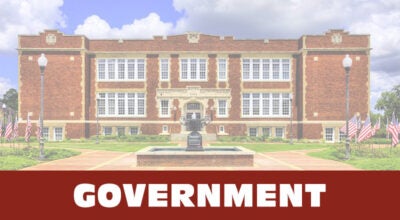BOE asks city to join tax dispute
Published 11:59 pm Wednesday, November 18, 2009
After almost a year of unsuccessfully lobbying the state for collection of an additional 3 mills in ad valorem tax, the Andalusia Board of Education passed a resolution Wednesday to ask Mayor Earl Johnson and City Attorney Mark Christensen to join in the effort.
The BOE insists that the Andalusia City Schools should be receiving an additional 3 mills (a mill is equal to $1 on every $10,000 of taxable property) in ad valorem tax, which should be collected by the Covington County revenue commissioner. Currently, the ACS receives 7 mills from the county, 7.5 mills from the city for “salaries” and 2.5 mills from the city for “debt retirement.”
Under Amendment 2, passed by statewide election in November 2006, all school systems in Alabama are required to receive at least 10 mills from local funding for “general education purposes.” Andalusia Superintendent Dr. Beverly McAnulty said the state’s argument is that Andalusia already receives 17 mills (the 7 mills from the county and the 10 from the city), but she argues the 10 mills from the city should not count toward the 10-mill minimum, because those city mills are earmarked for specific purposes.
The BOE has repeatedly asked Attorney General Troy King’s office for an opinion concerning the matter, but have so far been unable to get a ruling. The BOE first granted McAnulty the authority to seek the attorney general’s opinion at the Nov. 17, 2008, meeting.
“Before (Amendment 2) passed, the only thing the state counted was the 7 mills the county collects,” McAnulty said. “Now, the state says we already have 17 mills, so they don’t need to collect another 3 mills for us. We challenged it, and that’s where we got back ‘no opinion.’ The city now wants to challenge it with us.
“Our mayor is a lawyer, and he believes that working with our attorney (Bill Alverson) and the city’s attorney (Mark Christensen), we can get this resolved.”
Board member Dr. Bill King said he felt the citizens of Andalusia were misled into voting for Amendment 2.
“At the time, we had this big public push and the people voted for it because we were told we’d get the extra (3 mills) because we were eligible for it,” he said. “Now, it seems like the state is saying, ‘Oh, you’re not eligible.’”
McAnulty said 3 mills would be equivalent to approximately $300,000 annually for the ACS. A taxpayer who owns property worth $100,000 would pay approximately an extra $16.50 in annual county property taxes.
If the state rules that ACS should receive an additional 3 mills from the county, she said it would only go into effect the year the ruling is passed — the ACS would not receive 3 mills from years dating back to 2006.
McAnulty added the city would still keep providing the 10 mills of local funding, regardless of what the state rules.
“The city’s not going to take our mills away,” she said. “They’re just going to make sure we’re getting what we’re supposed to be getting from the state.”





